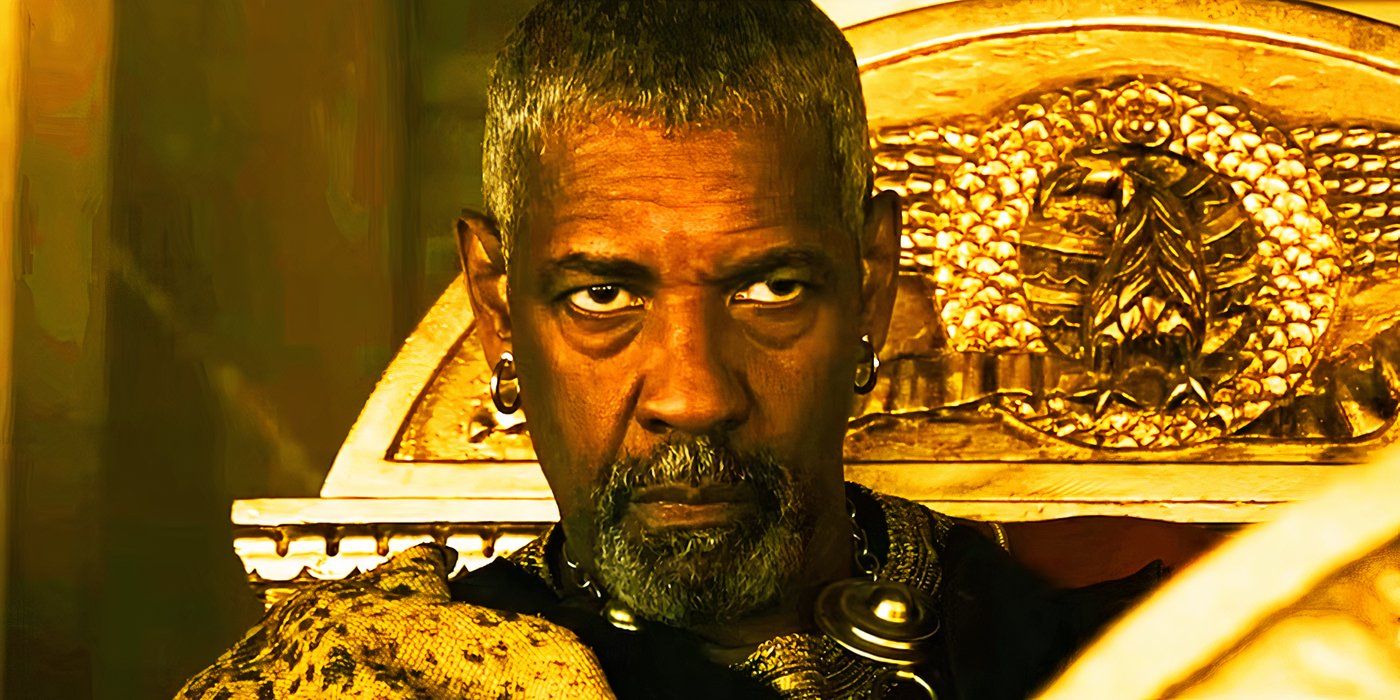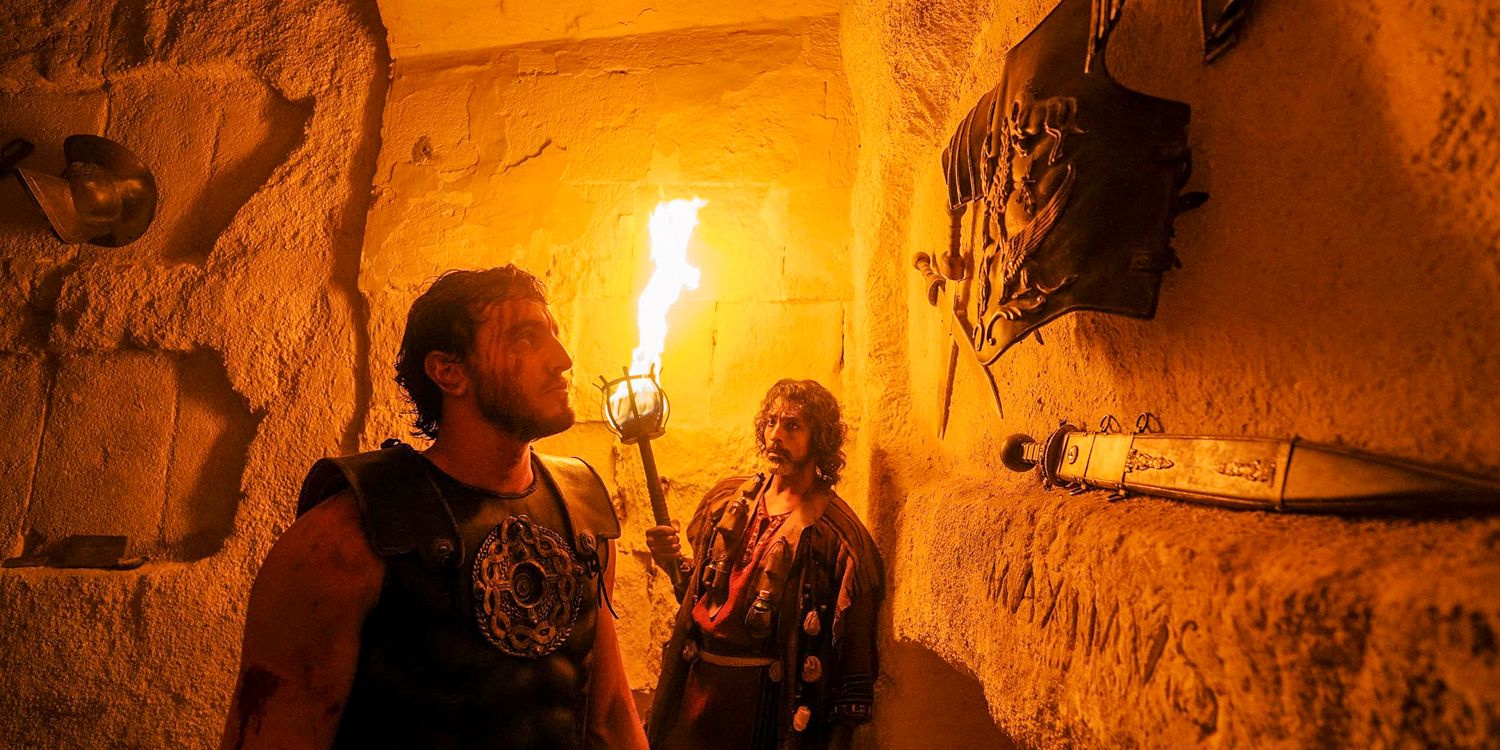Gladiator 2 features several references to the original film, both in the form of returning characters and echoed quotes, that make it one of the stronger legacy sequels in recent years. The story follows Paul Mescal’s character Lucius, the estranged son of Maximus and Lucilla from the original movie, who returns to Rome seeking vengeance for the death of his lover at the hands of the Roman Legion. Gladiator 2’s story shares many similarities to the first, and Ridley Scott uses some historical quotes and poems to reflect these thematic likenesses.
Much of Gladiator 2 centers around legacy – whether that’s Marcus Aurelius’ legacy for the “dream of Rome” or Maximus’ legacy that his son is now trying to live up to. It’s a key theme in the story, and Ridley Scott reflects that by including certain historically accurate elements to present an almost meta-textual examination of the Roman Empire’s legacy among modern audiences. While neither Gladiator film is entirely based on reality, certain aspects such as Lucius’ poem give it a certain legitimacy for audiences to appreciate.
What Poem Does Lucius Recite In Gladiator 2?
Lucius Recites A Poem To Emperor Gata Upon His Arrival In Rome
Lucius is the main character of Gladiator 2, and the majority of the film closely follows his rise to power as he travels from North Africa to Rome in search of glory and vengeance. But when he arrives in Rome, the warrior is unwilling to talk to any of his superiors in a stubborn display of rebellion. After defeating a fellow gladiator for the entertainment of the Emperors, the only thing that Lucius is willing to say in response is to recite a poem that he learned when he was younger.
Related
Gladiator 2’s Box Office Breaks A Ridley Scott Record Before Its Battle With Wicked Even Starts
Gladiator II, the sequel to Ridley Scott’s 24 year old Roman epic, has broken a record for the director at the international box office.
The poem is an extract from Virgil’s famous epic The Aeneid, which immediately reveals to the Emperors that Lucius has an education in Latin – which wouldn’t be expected of the slaves from Africa. The poem also helps reunite Lucius with his mother, as she identifies the words of his verse as those that were inscribed on the walls of their home, where young Lucius grew up. From here, she figures out his identity and works alongside him to bring his father’s dream of a diplomatic, democratic Rome to fruition.
The Meaning Of Virgil’s The Aeneid Explained
The Classic Poem Is About The Foundation Of Rome
The Aeneid is a famous poem by the ancient Roman poet Virgil, who is often credited as the father of Latin poetry. He lived during the Augustan period, roughly 250 years before Gladiator 2 takes place. The poem is split into several parts, each with their own individual meanings and innovative uses of prose, but the narrative as a whole centers around the legendary hero Aeneas, who fled to Italy after the fall of Troy. In mythology, Aeneid is sometimes considered the first Roman.
The story is an immense epic that follows Aeneas’ journey from the ruins of Troy to the lucrative kingdom of Italy, where he crafts a new life for himself and begins the construction of a new empire that would ultimately become Rome.
The story is an immense epic that follows Aeneas’ journey from the ruins of Troy to the lucrative kingdom of Italy, where he crafts a new life for himself and begins the construction of a new empire that would ultimately become Rome. This dense storytelling and meaningful connections to ancient mythology help give the film a richer, more authentic setting that strongly contributed to Gladiator 2’s mostly positive reviews.
How The Aeneid Ties Into Gladiator 2
Lucius Picked This Poem For A Specific Reason
The reason Lucius quotes The Aeneid to the Emperors following his intense fight sequence is inherently rebellious: it’s a story that questions the foundations of the Roman Empire, glorifying the realm’s national values and reminding people that just as empires can rise from ashes, they can just as easily return to them. Emperor Gata seemingly recognizes the ferocity in Lucius’ words, but much like Emperor Commodus in the original film, he lets the gladiator off the hook in order to appease the crowds who are cheering for him.
Aeneas’ journey in The Aeneid also shares some similarities with those of both Maximus and Lucius in Gladiator 2. Just as Aeneas seeks to rebuild Troy from the bones of a fallen empire, Maximus and (eventually) Lucius are looking to incite rebellion and rebuild Marcus Aurelius’ “dream of Rome” from the ashes of what they believe to be a failing empire. It’s a powerful message that solidifies Lucius as his father’s successor, while clearly displaying the distrust he holds for the Emperors.


